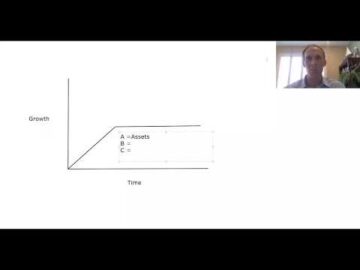
What matters most of course is how the underlying businesses are doing, and when it comes to Intel what we really care about are the Data Center & AI group and the Network and Edge Group.. We like when the other parts of Intel are growing and making money, of course, because that makes Intel more resilient. But what we really always care about is trying to ascertain how its “real” datacenter business is performing financially. It has evolved into a significant field in the financial landscape throughout the years.
- By doing so, you can set your business up for success and have an accurate view of how it’s performing.
- The NACPB offers a certified bookkeeping professional (CPB) designation, and AIPB confers a certified bookkeeper (CB) license.
- Aspiring bookkeepers don’t need work experience to apply for entry-level roles.
- Let us walk you through everything you need to know about the basics of bookkeeping.
- The technology is helping to automate repetitive tasks, but businesses still rely heavily on analysis and decisions by individuals to maximize effectiveness.
In the field of bookkeeping, employers prefer past clerical work experience instead of higher qualifications. It is required for a bookkeeper to have a high level of coordination with the accountant to make sure that the funds are managed correctly. So we can say bookkeeper requires a high level of accuracy and dedication rather than higher education. If you’re struggling with keeping up basic financial recording and often find it difficult to manage your invoices, payment cycles, or daily transactions, then it might be time to get a bookkeeper on board to help. Equally, if you’re looking for more technical advice, or need help completing your annual accounts, then an accountant can step in and assist. The single-entry bookkeeping method is often preferred for sole proprietors, small startups, and companies with unfussy or minimal transaction activity.
Get Tips On Job Searching
When it’s finally time to audit all of your transactions, bookkeepers can produce accurate reports that give an inside look into how your company delegated its capital. The two key reports that bookkeepers provide are the balance sheet and the income statement. The goal of both reports is to be easy to comprehend so that all readers can grasp how well the business is doing.
With bookkeepers, there are a lot of minutiae involved, and keen attention to detail is paramount. Accountants, on the other hand, tend to use the bookkeeper’s inputs to create financial statements and periodically review and analyze the financial information recorded by bookkeepers. We’ve listed some of the key differences when it comes to the requirements and job market for each.
Defining the Roles
To become an accountant, they must earn a bachelor’s degree from an accredited college or university. A bookkeeper with professional certification shows they are committed to the trade, possess the skills and expertise required and are willing to continue learning new methods and techniques. There are no formal educational requirements to become a bookkeeper, but they must be knowledgeable about financial topics and accounting terms and strive for accuracy. A bookkeeper is not an accountant, nor should they be considered an accountant. On one hand, if you are unsure of how far you want to progress in the finance industry, bookkeeping may be the role for you, at least for starters.

Whether you’ve started a small business or are self-employed, bring your work to life with our helpful advice, tips and strategies. Let us walk you through everything you need to know about the basics of bookkeeping. If you’re a detail-oriented individual who enjoys working with numbers, then you might consider a career as a bookkeeper.
Are bookkeepers accountants?
Business transactions can be recorded by hand in a journal or an Excel spreadsheet. To make things easier, many companies opt to use bookkeeping software to keep track of their financial history. It may take some background research to find a suitable bookkeeper because, unlike accountants, they are not required to hold a professional certification. A strong endorsement from a trusted colleague or years of experience are important factors when hiring a bookkeeper. Check out our reviews of the best accounting software for small businesses so you can create invoices, record payments, collect receivables and run reports that help you manage your financial health.
- Without bookkeeping, accountants would be unable to successfully provide business owners with the insight they need to make informed financial decisions.
- And while an accountant’s fees are typically higher than those of a bookkeeper, you will likely also work with an accountant much less frequently.
- On the other hand, if you have in-depth tax and finance knowledge beyond the bookkeeping basics, you may be able to get the job done.
- Preferably, they should have completed their training with one of the UK’s chartered accountancy bodies and will have the initials ACA, ACCA, ICAS or CIMA as recognition of their qualifications.
- However, before choosing which career path to follow, you’ll want to look at the differences between the roles of bookkeeper vs. accountant to decide what is a better fit.
They may not be as involved with business operations, but accountants are essential to supplement the bookkeeper’s work. Even if you don’t have previous related experience, you can learn how to become a bookkeeper by taking courses. Comprehensive online hiring employees courses like the Bookkeeper Launch will even teach you how to start your own bookkeeping business. A bookkeeper can be the business owner, an in-house employee, freelancer or professional from an online bookkeeping service like QuickBooks Live or Bench.
The Difference Between a Bookkeeper Vs Accountant
There are some cases in which a high school diploma will suffice for either position. The educational requirements are typically dictated by the hiring company. Still, completing one or both of the licensing processes demonstrates that job applicants possess skills and competencies employers need. So, bookkeepers who can add «CPB» or «CB» after their names may be more competitive than other candidates. A bookkeeper is responsible for recording transactions into the system, which is part of the wider and more general practice of accounting. Bookkeepers who are interested in switching jobs but do not have a college degree might consider becoming an EA after a stint with the IRS.
Intuit Bookkeeping Expert Careers Remote Bookkeeping Jobs … – intuit.com
Intuit Bookkeeping Expert Careers Remote Bookkeeping Jobs ….
Posted: Tue, 11 Apr 2023 04:19:15 GMT [source]
However, if you need insight and advice on how to better operate your business at scale…you will need help from an accountant. The line between where a bookkeeper role ends and an accountant’s begins is not set in stone. However, the two either work closely together or one person can end up handling both. Explore programs of your interests with the high-quality standards and flexibility you need to take your career to the next level. Take your learning and productivity to the next level with our Premium Templates. In addition, you must be a member of the Association of Certified Fraud Examiners.
Whether you’re trying to determine the best accounting system for your business, learn how to read a cash flow statement, or create a chart of accounts, QuickBooks can guide you down the right path. Start building the professional skills you need to get a job as a bookkeeper in under four months with the Intuit Bookkeeping Professional Certificate on Coursera. Learn at your own pace from industry experts while getting hands-on experience working through real-world accounting scenarios. At the end of the course, you’ll receive a professional certificate, which you can put on your resume to demonstrate your skills and accomplishments to potential employers.
Financial Services & Investing
With an accurate record of all transactions, you can easily discover any discrepancies between financial statements and what’s been recorded. This will allow you to quickly catch any errors that could become an issue down the road. If you’re new to business, you may be wondering about the importance of bookkeeping. Whether you outsource the work to a professional bookkeeper or do it yourself, you’ll be able to reap a variety of benefits. Bookkeepers are integral to ensuring that businesses keep their finances organized. If you’re considering a career as a bookkeeper, then you might consider taking a cost-effective, flexible course through Coursera.
But as your business expands, bringing on a bookkeeper can alleviate your workload and free up your time to devote to other areas of the business. Bookkeeping is the process of keeping track of a business’s financial transactions. These services include recording what money comes into and flows out of a business, such as payments from customers and payments made to vendors. While bookkeepers used to keep track of this information in physical books, much of the process is now done on digital software. As your business grows to include more customers, vendors and employees, keeping track of your finances on your own becomes more challenging.
Are you ready to discover your college program?
Accountants help businesses understand the bigger picture of their financial situation. For instance, they must understand how to produce balance sheets and income statements, as well as record organizational debits and credits. To learn these skills and others, new bookkeepers often receive around six months of on-the-job training to learn how to use bookkeeping software, databases, and spreadsheets. Perfect Balance Bookkeeping and Tax Services specializes in a range of financial solutions tailored to meet the unique needs of each client. The company’s comprehensive bookkeeping services ensure that clients can track their income, expenses, and financial transactions with ease, providing them with a clear understanding of their financial health. In simple words, a bookkeeper is an expert who helps you keep all the financial records of your business.
Bookkeeping offers much lower barriers to entry, and the competition you face in the job search is less fierce. As an accountant, you may work for a company or yourself, and there are opportunities for accountants in many industries like law, insurance and health, small business, and, of course, tax accounting firms. Therefore, those who do not like math, get confused easily when making simple calculations, or are generally opposed to number crunching should not apply.
Take routine bookkeeping off your never-ending to-do list with the help of a certified professional. A QuickBooks Live bookkeeper can help ensure that your business’s books close every month, and you’re primed for tax season. Our expert CPAs and QuickBooks ProAdvisors average 15 years of experience working with small businesses across various industries. Typically, single entry bookkeeping is suitable for keeping track of cash, taxable income, and tax deductible expenses. Some bookkeepers, especially those with bachelor’s degrees in accounting, may decide to become certified public accountants (CPAs). CPAs have similar job responsibilities to bookkeepers, but must also analyze data, suggest best practices, and make predictions.
A forensic accountant’s job is to investigate, audit, and prove the accuracy of financial documents and dealings. There are opportunities for forensic accountants in many industries, like nonprofit work, government and law-enforcement agencies, law firms, and large corporations. It is not an unusual career move for a bookkeeper to gain experience at a job, study, get certified, and work as an accountant.















